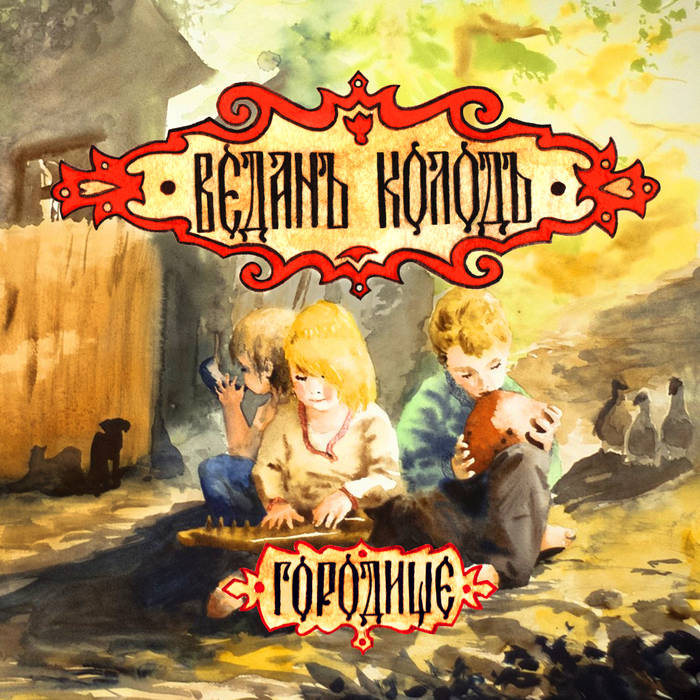Vedan Kolod are a troupe based in Moscow, Russia, who do sterling work interpreting medieval Russian folkloric music, especially Siberian tunes, with a modern twist. The label, CPL, is run by my friend and colleague, Christian Pliefke, whose taste in artists is impeccable, and every release he’s curated for his imprint has been solid listening.
From the promo onesheet:
With their release, Gorodische, Russian folk ensemble Vedan Kolod strive to make traditional folk songs from very different parts of their country accessible to a wider public. The vast majority of the songs are going back several centuries and have been newly arranged by the band. “It is our one album of genuine folk”, says singer and percussionist Tatiana Naryshinka, the other band members being Daryana Antipova and the singer and multi-instrumentalist Valery Naryshkin.
Originally released in 2014, the album also contains songs that have long been part of Vedan Kolod’s live repertoire. The band originally hails from Krasnoyarsk, Siberia’s third largest city, but has spent many years in Moscow and was also involved in different international artistic projects. They started out fifteen years ago and in the early days mainly focused on medieval sounds. Their first album, Tribes, from 2005 centered around the tradition of shamanic music from Siberia. Its follow-up, The Tale Of Igor’s Campaign, was the result of dealing creatively with a medieval manuscript. Gorodische finally took a closer look at the late Middle Ages and was recorded primarily on medieval instruments.
In the years following, Vedan Kolod then put their focus mainly on experimental world music. Daryana Antipova explains how they were one of the first Russian folk bands that used crowdfunding as a means to finance the production of an album–in this way Gorodische was funded by their Russian and a few international fans. Nowadays the concept is a common approach in the album recording process on the Russian scene.
There is a tragic story behind the album’s expressive booklet design. Due to a protracted depressive illness, Polish paintress Daria Dobronega Kowalska,who did the artwork, took her own life only a few weeks after Gorodische was released. In her farewell letter she asked the album to be played at her funeral. It was in 2005 that Vedan Kolod came together as an ensemble and put their main emphasis on traditional songs from Siberia and Western Russia as well as on original compositions. Particular importance they attached to rediscovering music from pre-Christian times and from the Middle Ages, to which end they have searched archives all over Russia. Vedan Kolod sing in Old Russian or Old East Slavic dealing with myths and legends from their homeland. Translated from Old Russian their band name means “prophetic tree.” “The tree connect searth and heaven, remembers our past and knows our future,” the three band members say. In the same vein they conceive of wooden instruments as “story tellers” since from a historical point of view, to make music on traditional instruments was closely linked to the rich vocal tradition. To play their music Vedan Kolod make use of numerous traditional folk instruments almost forgotten in their homeland like the gusli, an instrument of the zither family, the ocarina, a vessel flute, or the Scythian horn. These instruments are restorations or reconstructions handcrafted by Valery Naryshkin himself. Already in its founding year, the ensemble was awarded the prize for the best Russian folk music group at the Uustu Khuree Festival in the autonomous Russian republic of Tuva. Since they started out as a band Vedan Kolod have performed at numerous festivals, especially in Russia itself. They have recorded eight albums so far and collaborated with other folk bands. Vedan Kolod also regularly set up their own radio programme on Moscow Folk Radio and have released the soundtrack to an animated film.



